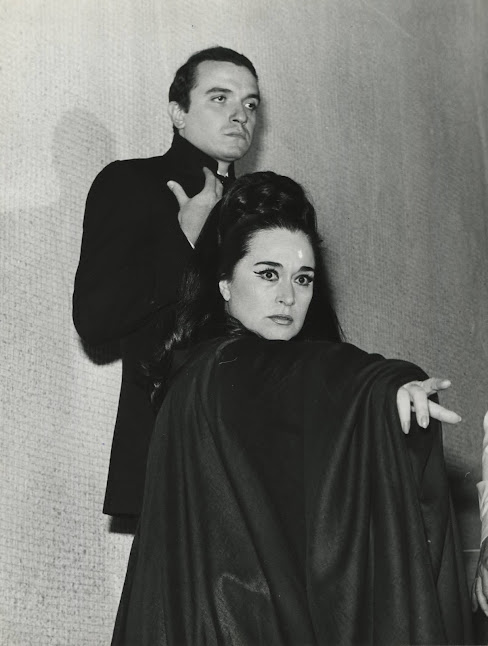Of the thirty-five operas Luigi Cherubini (1760-1842) composed, only Medea, his twenty-first, has remained part of the standard repertoire. A greatly underrated opera composer, Cherubini contributed much to opera's development in the post-Gluck "reform period," during which composers sought to drop many of Italian opera's excesses in favour of a leaner, more dramatically truthful compositional style. Cherubini was born and educated in Florence where he received a solid background in the "old school" of musical education: a cappella style, counterpoint, figured bass accompaniment, string and keyboard instruments, sight singing, etc. At age eighteen he received a scholarship to study in Bologna and Milan; Cherubini chose Sarti, a renowned composer of opera seria, as his teacher. Influenced by Sarti, Cherubini's early works were written in the new style of Italian dramatic music. He had operas produced in Florence, Livorno, and London before visiting France for the first time in 1785. After being introduced to Marie Antoinette and the Parisian intellectual society, Cherubini decided to move to France, where he spent the rest of his life.
In 1792 Cherubini signed a contract with the Theatre de la rue Feydeau from which he received an annual salary and was paid for each opera he composed. In his ten years there he produced seven operas (all in French), including Médée (1797) and Les deux journées (1800), his two best-known operas. In a time when the forms of opera buffa and opéra comique were becoming more prevalent, it was Cherubini's desire to be known as a creator of great tragédies lyriques. The three operas he wrote in that form, however, were never successful either within or outside France. His most important contributions to nineteenth-century opera were in opéra comique, a style that contains spoken dialogue. Although Médée is subtitled opéra in the score, it is technically an opéra comique, given that it has spoken dialogue instead of sung recitative.
Médée was only a succès d'estime in its original run; although it received critical acclaim, just twenty performances were given, and the opera was not heard again in France until the twentieth century. Outside France, the opera fared much better. Beethoven was an admirer of the score, and it was heard in German opera houses throughout the nineteenth century. Until the 1980's, the score was performed mostly in altered versions. For example, the spoken dialogue from François-Benoît Hoffman's libretto was set to Wagnerian-style recitative in 1854 by Franz Paul Lachner; as with Bizet's Carmen, the effect of the musical numbers is quite different when offset by speech, as opposed to being linked by sung recitative. For its first Italian performance at La Scala in 1909, the opera was given in an Italian translation by Carlo Zangarini, which became the standard performing edition. The opera was not received favourably, however, and was not given again until the sixteenth Maggio Musicale Fiorentino in 1952, when Maria Callas sang the title role. Her unforgettable interpretation of Medea did much to renew interest in the piece, and since then it has received much more attention. The original French version was given at the Buxton Festival in 1984 and at Covent Garden in 1989.
In the grisly horror it depicts, the opera has few equals. Fuelled by Medea's desire for revenge against her unfaithful husband, Jason, the opera takes the listener on a three- hour emotional tour, the likes of which had not previously been displayed on the French lyric stage. The demands of the title role on the interpreter are significant, both from a vocal and an acting point of view.
The Medea of this performance is Leyla Gencer (b 1924, Ankara), who was taught by Elvira de Hidalgo. She made her debut at the Ankara Opera in 1950 as Santuzza. In 1953 she started her Italian period at Teatro San Carlo in Naples as Madama Butterfly and worked for the Teatro alla Scala in Milan from 1956. Many guest performances all over the world followed: as Amelia in Simon Boccanegra (Verdi) during the Salzburger Festspiele 1961, Elisabeth in Don Carlos (Verdi) and Donna Anna in Don Giovanni (Mozart) at Covent Garden in London, Norma (Bellini) in the Festival of Verona (1965), Giulia in La Vestale (Spontini) in the Opera of Rome, among others.
Creonte is performed by bass Ruggero Raimondi (b 1941, Bologna). His stage debut was as Colline in Puccini's La bohème at the Spoleto Festival. In the same year he gained great success as Procida in Verdi's I vespri siciliani at the Opera of Rome. From 1965 until 1967 he worked at Teatro La Fenice in Venice, performing roles as Mephisto in Faust (Gounod), Alfonso in Lucrezia Borgia (Donizetti) and the title role in Le nozze di Figaro (Mozart). From 1970 he starred at Teatro alla Scala in Milan, as well as in the Metropolitan Opera in New York, followed by many, many roles and performances. He is famous for his powerful, voluminous bass, a real Italian 'basso cantante' Daniela Mazzucato, originally name Meneghini (b 1946, Venice) is heard in the role of Galuce. Her debut was in 1966 at the Teatro La Fenice in Venice as Gilda in Rigoletto (Verdi.) She performed in all the major Italian opera houses and did guest performances throughout Europe.
This 1968 production is conducted by Carlo Franci. Although born in Buenos Aires in 1927, he has Italian nationality, being the son of baritone Benvenuto Franci. He studied in Rome and attended Fernando Previtali's conducting courses. At first, he only conducted symphonic music but made his operatic debut in 1959 with Hänsel und Gretel in Spoleto. He then conducted at the leading Italian theatres, as well as at the Metropolitan Opera, the Vienna Staatsoper and other houses.


































































.jpg)
.jpg)
.jpg)
.jpg)
.jpg)
.png)
.jpg)
.jpg)
.png)
.jpg)
.jpg)
.jpg)
.jpg)
.png)
.jpg)
.jpg)
.jpg)
.jpg)
.JPG)
.jpg)
.jpg)
.jpg)
.jpg)
.jpg)
.jpg)
.jpg)
.jpg)
.jpg)
.jpg)



























